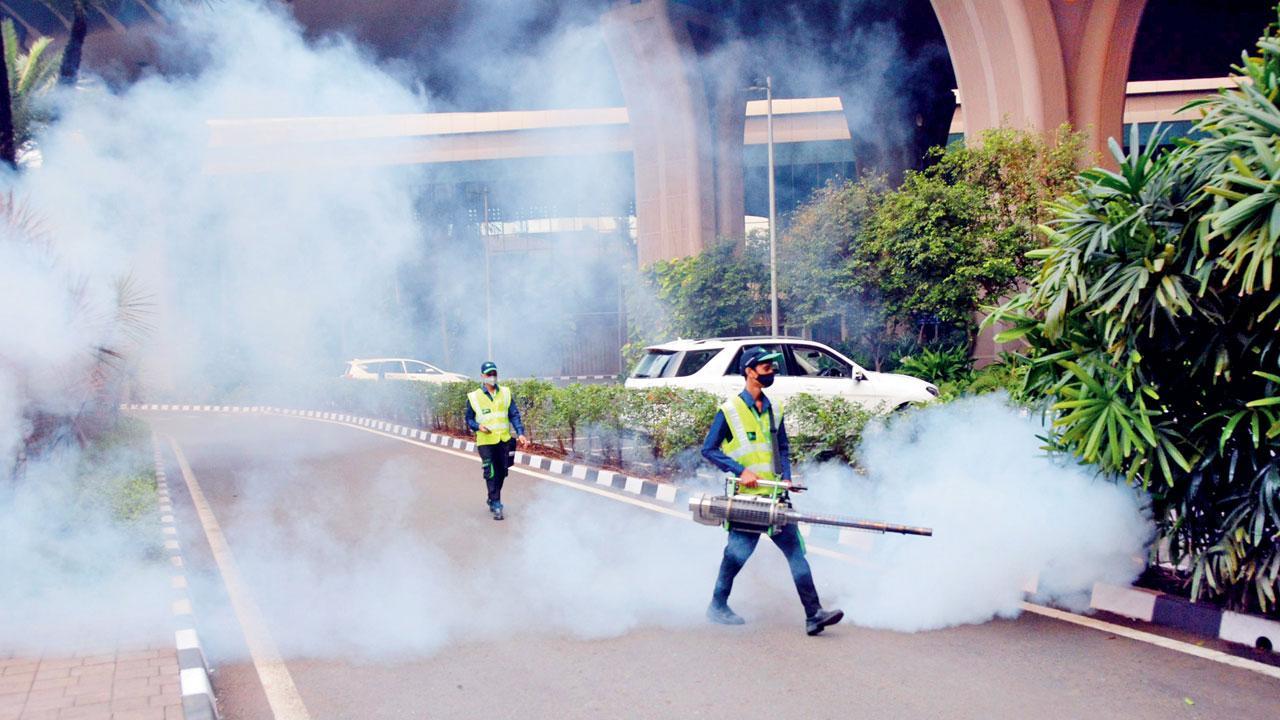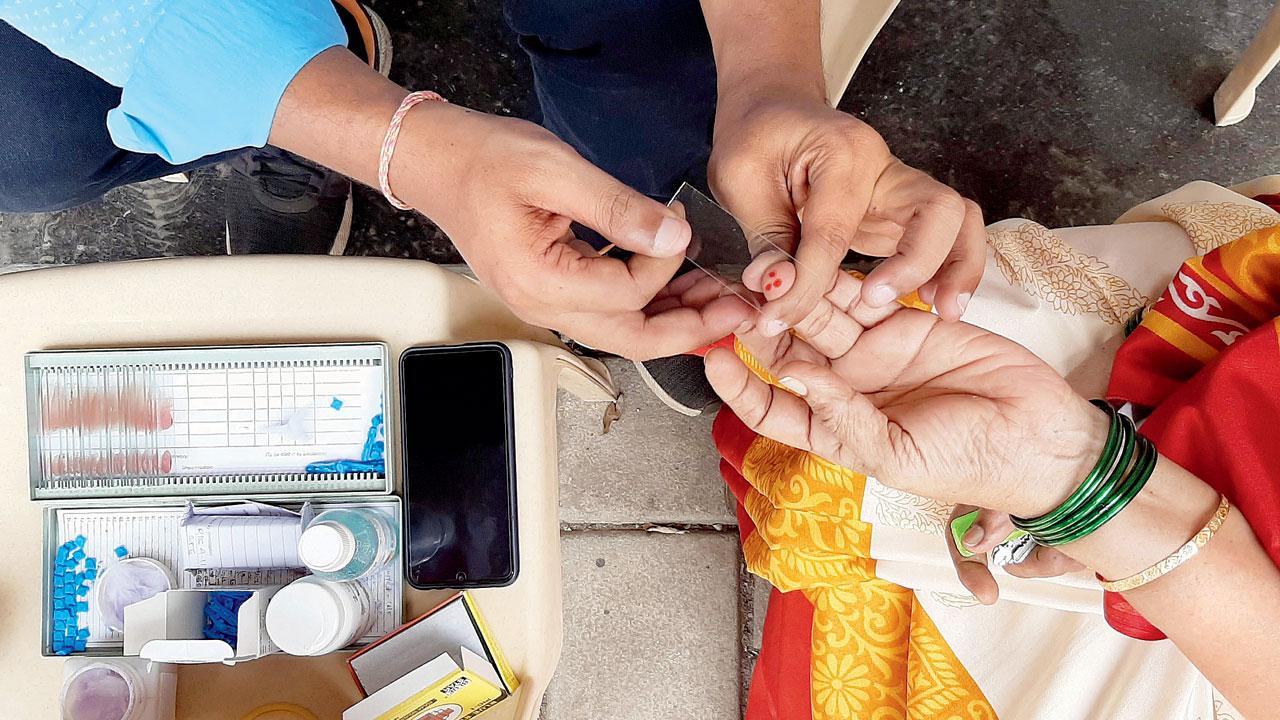Dengue cases rise sharply, health authorities vigilant amid monsoon challenges

BMC staff use a fogging machine to prevent the breeding of mosquitoes. File Pic/Sayyed Sameer Abedi
The month of July witnessed a sharp rise in vector-borne diseases. According to the Brihanmumbai Municipal Corporation’s health department, most cases were treated on an outpatient department (OPD) basis. The most alarming increase was in dengue cases, with 579 reported in July and 377 in June.
One confirmed dengue-related death and one suspected dengue death were reported. BMC is expected to release mortality data soon. Dr Daksha Shah, head of the BMC health department, assured, “We are in the process of cross-checking and verifying the data, but there is no significant rise in mortality even though some diseases have shown an increase in cases.”
 A BMC healthcare worker collects blood samples. File Pic/Satej Shinde
A BMC healthcare worker collects blood samples. File Pic/Satej Shinde
Last year, there were only 61 dengue cases in July and 39 in June. However, this July, the city recorded 721 cases of malaria, 377 of leptospirosis, 1,649 of gastroenteritis, 138 of Hepatitis, 24 of Chikungunya, and 86 of H1N1. Except for H1N1 cases, which declined compared to last year, all other ailments saw an increase. Health department officials noted that unlike vector-borne diseases, there was no rise in water-borne diseases. The civic body surveyed over 20 lakh houses and more than 70 lakh individuals for monsoon-related ailments. Over 1,41,180 blood slides were collected to test for malaria, and 1,16,983 individuals received prophylaxis for leptospirosis in July. Prophylaxis is crucial for those exposed to contaminated water in waterlogged areas.
Leptospirosis spreads through animal urine and faeces, mainly rodents and cattle. Most leptospirosis cases in Mumbai occur shortly after heavy rains when waterlogging mixes animal waste with collected water. BMC acted this monsoon, addressing 142 chronic flooding areas to control rats and destroying 9,203 rat habitats. While leptospirosis cases have reached hundreds this year, they were only in two digits last year. The health department attributes the significant increase in figures (except for dengue) to a rise in reporting units from 22 to 880, which include BMC dispensaries, hospitals, HBT clinics, additional private labs, and private hospitals.
 Subscribe today by clicking the link and stay updated with the latest news!" Click here!
Subscribe today by clicking the link and stay updated with the latest news!" Click here!










